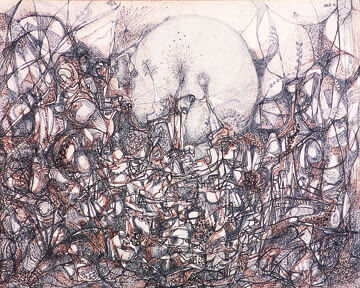
Each mortal thing does one thing and the same:
Deals out that being indoors each one dwells;
Selves—goes itself; myself it speaks and spells,
Crying Whát I dó is me: for that I came.
— “As kingfishers catch fire””
Gerard Manley Hopkins
Essence, inner being, soul, heart’s core,
quiddity (poor thesaurus!)—are they one?
each other’s twin, perhaps?—I doubt it. Heart
and soul? O, surely, one the flesh and one
the ghost of flesh, less heavy but more dense.
And yet their object, their intent, their aim
sprung from that inner being, arrowing
truly towards its target, is become
singular and centred as a flame.
Each mortal thing does one thing and the same.
Cat is only cat and I—though a myriad
selves are self—am never more nor less
than is my essence. Surely “ís is ís”
(and here I quote Frank Scott, who said it first)
and ever shall be, while osmosis-like,
I occupy—or is it?—am this flesh.
A mystery. Sometimes the Holy Ghost
seems immanent, sometimes a vacant house
spills out its emptiness, expels, expels,
deals out that being indoors each one dwells.
How focus and define it? Is there need?
Not for most selves, host selves, but for those
lightweight stragglers who stand about,
shadowy figures, who are part of it
unthinkingly, and have a need to see
intrinsically, be drawn in to their self—
their “heart and soul” self—Freud would call it “id”—
indelible as India ink, the stuff
of inward/outward self that spills and spills
self—goes itself; myself it speaks and spells.
A naked child, there in its very buff,
unspeaking still, is in its heart of hearts
its self—no other—has no either/or.
Its “I am I” is printed in each cell.
And Rilke’s “tiny creatures” and great Blake’s
innocent little Joy are both at home
in skin and every skein of DNA.
That self, that essence, singular, unique,
knowingly enters in its place and time
crying Whát I dó is me: for that I came.




